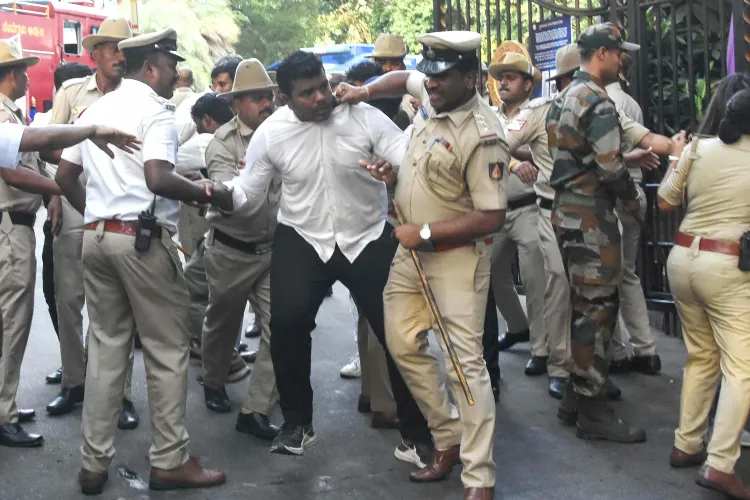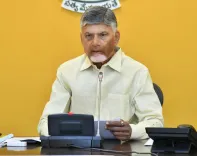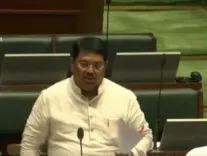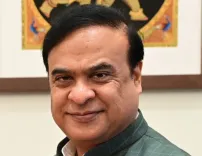What Did the Judicial Commission Report Reveal About the Chinnaswamy Stampede Case?

Synopsis
Key Takeaways
- The One-Man Commission report on the Chinnaswamy stampede is important for accountability.
- Cabinet will discuss the report in future meetings.
- Justice John Michael Cunha led the investigation.
- Other significant decisions include a nuclear power plant and tourism development.
- Safety measures during large events must be prioritized.
Bengaluru, July 17 (NationPress) The findings of the One-Man Commission of Inquiry concerning the stampede incident that tragically resulted in the loss of 11 lives on June 4 during the RCB’s IPL victory celebration have been presented to the Karnataka Cabinet on Thursday.
To ensure that the investigation into this unfortunate event was both thorough and impartial, the state government established a One-Man Commission of Inquiry on June 5, 2025. This commission, led by retired High Court Justice John Michael Cunha, was entrusted with specific terms of reference and was required to complete its investigation and deliver a detailed report within a month.
During a press briefing regarding the Cabinet's decisions, Minister for Law and Parliamentary Affairs H.K. Patil stated: “The Cabinet has received the report from the one-man judicial commission led by retired Karnataka High Court judge Justice John Michael Cunha concerning the stampede at Chinnaswamy Stadium on June 4, 2025. The report will be reviewed and discussed in the upcoming Cabinet meeting.”
When questioned if the Cabinet had accepted the report, Minister Patil clarified: “It was the final item on the agenda. The Cabinet has received the report and will deliberate on it at the next meeting. The outcome will be communicated to the media afterwards.”
Regarding the submission of the report to the court, the Minister mentioned that it would be submitted “whenever the court requests it.” He reiterated that the Cabinet would first analyze the report and make a decision in the next meeting.
Other significant decisions made during the Cabinet meeting chaired by Chief Minister Siddaramaiah included preliminary approval for establishing a nuclear power plant in Karnataka. The NTPC (National Thermal Power Corporation) has been authorized to conduct a preliminary study at potential sites identified in the state.
Additionally, a decision was made to regulate the issuance of “A” and “B” Khatas (property ownership records) for properties situated in the Greater Bengaluru area.
Approval was granted to create a Horticulture Technology Park on 194.33 acres of government land in Sirivara village, Kanakagiri taluk, Koppal district, under the PPP model, at an estimated cost of Rs 83.79 crore.
Allocation of 5 acres and 23 guntas of government land in Yeramarenahalli village, Mandikallu hobli, Chikkaballapur taluk, to ISKCON Bengaluru for constructing an Akshaya Patra kitchen and a school for economically and socially disadvantaged rural children.
Allotment of 15 guntas of government land in Survey No. 66 of Veerabhadrapalya village, Doddaballapur taluk, Bengaluru Rural district, to the Congress Bhavana Trust for building a Congress party office.
Approval for developing the North Karnataka Tourism Circuit—including Hampi, Badami, Aihole, Pattadakal, and Vijayapura—under the DBFOT model through Karnataka Tourism Infrastructure Limited (KTIL) at an estimated cost of Rs 166.22 crore.
Sanction for constructing a residential pre-university college for minority girl students in Ullal, Dakshina Kannada district, at an estimated cost of Rs 17.09 crore, with a capacity for 400 students.
Administrative approval for the construction of four residential school and college buildings under the Minority Welfare Department, at a total estimated cost of Rs 64 crore.





